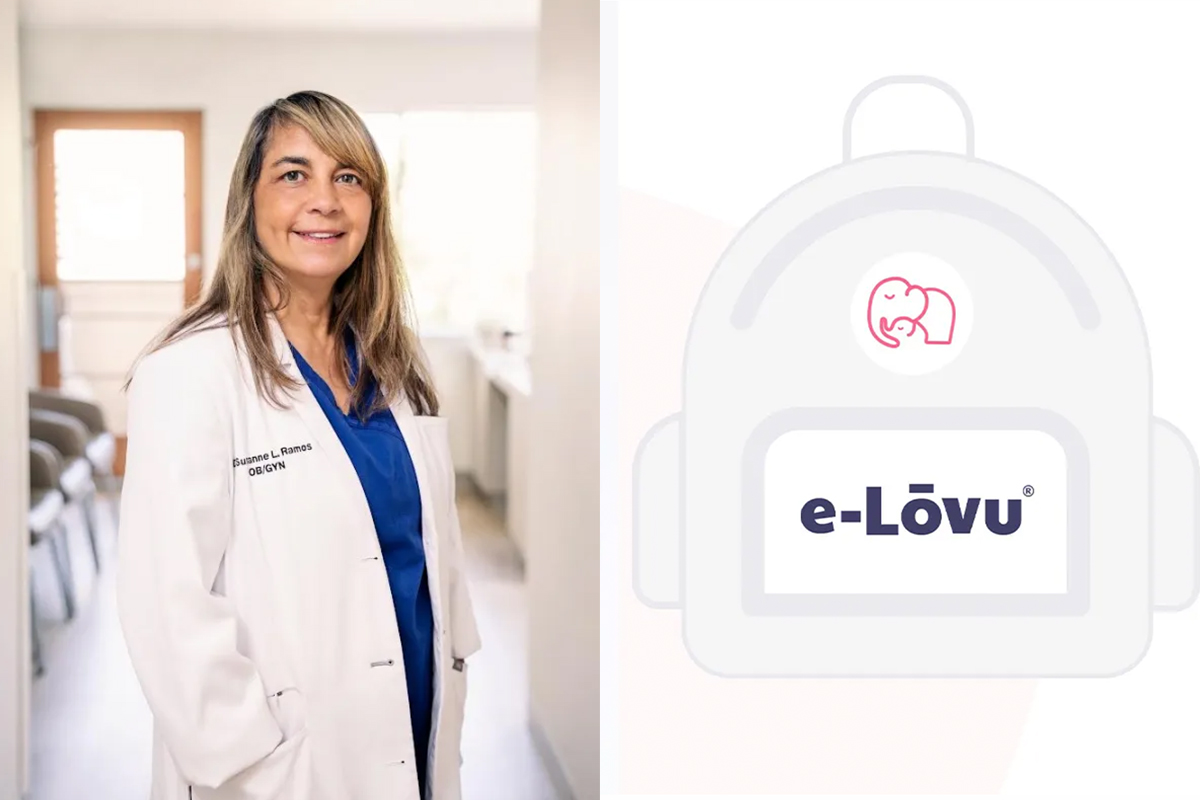Due to a nationwide decline in maternal care services, stemming from a shortage of providers, many mothers are unable to receive care until they’re actually having their babies. However, following a growing trend in health-care services, maternity care is gaining more remote options to bridge the gap between patients and the increasingly out-of-reach doctor’s office.
“There’s a lack of maternal care across the nation, but especially here in Santa Barbara,” said Dr. Susanne Ramos, a board-certified obstetrician and gynecologist (OB/GYN) who has practiced in Santa Barbara for more than 20 years.
A divide between patients and specialized health-care facilities — creating maternity care deserts — exposes women to elevated risk of undiagnosed and untreated mental-health issues such as depression and anxiety, as well as severe obstetric complications such as high blood pressure (preeclampsia and eclampsia), hemorrhaging, and sepsis.
“So women are seeking care later during the pregnancy, whereas a lot of maternal diseases, if they’re caught early in the pregnancy, can be managed and prevented from worsening,” Ramos added.

To try to close the gap, Ramos is one of the first OB/GYNs in the nation to partner with e-Lōvu, a new digital wellness platform centered on comprehensive prenatal and postnatal care. Ramos said it serves as an “extra provider,” empowering patients to take an active role in their health-care journey.
The platform equips expectant mothers with monitoring tools such as blood pressure cuffs and fetal heart rate monitors. For Natasha Casias, one of Ramos’s patients, it actually might have saved her life.
On the night she went into labor, Casias had been feeling off. She checked her blood pressure, which was abnormally high, indicating severe preeclampsia.
“She came right in, and we delivered the baby two hours later,” Ramos said. “Who knows what would have happened if she hadn’t been checking and monitoring things at home. She could have had a stroke.”
Ramos and e-Lōvu work collaboratively to enable early diagnosis, personalized treatment, and timely intervention. A mother’s health data and concerns are sent to Ramos, so both she and her patient can keep tabs on the pregnancy and spot any complications early.
The platform also addresses mental health with regular screenings and quick access to behavioral health partners. It even extends to lactation consulting, birthing support, pelvic floor rehab, and nutritional guidance to address issues like gestational diabetes, and it connects moms with services and a navigation aid that can help with financial challenges and food insecurity.
Noël Pugh, e-Lōvu’s CEO, said the idea for the platform came out of pandemic-induced lockdown, the obstacles to maternal care across the country, and a broken health-care delivery system. A lack of focus on prevention and wellness, she said, as well as an outdated model for prenatal care, fragments the system and allows moms to fall through the cracks, particularly in the time between when they’re at home and physically in the doctor’s office.
In Ramos’s office, 20 percent of enrolled patients have been flagged as having moderate or higher symptoms of anxiety or depression, which is associated with higher rates of preterm birth and low birth weight, as well as suicide — the number one cause of postpartum death.

“Moms are suffering in silence,” Pugh said. “The platform creates that place of no shame, where mom can be vulnerable, and communicate, ‘Yes, I am thinking about killing myself. I am thinking about suicide.’ We’ve had that happen, and we’ve been able to very quickly intervene with the OB at the helm.”
By integrating directly with clinicians, the services are paid for by most insurance plans, including Medi-Cal and Medicaid. Pugh stressed that it caters to a diverse range of parents, too, offering support to single moms, queer moms, and those with varying family dynamics.
She said it’s there for a patient’s private struggles, like deciding whether they want to be pregnant, or, on the other end, sharing exciting information with a partner or even uploading their baby’s heart rate on Instagram.
“We’re happy to work with any birthing clinicians — doulas, midwives, home-birthing facilities,” she added. “The one thing that we ask is that there’s an absolute commitment to standards of care.”
In the face of limited resources, the platform has supported both Ramos and the patients who walk into her office each month. Ramos started enrolling patients in June, and so far, she said they’ve responded positively, especially to the opportunity to listen to their baby’s heartbeat on a whim.






You must be logged in to post a comment.